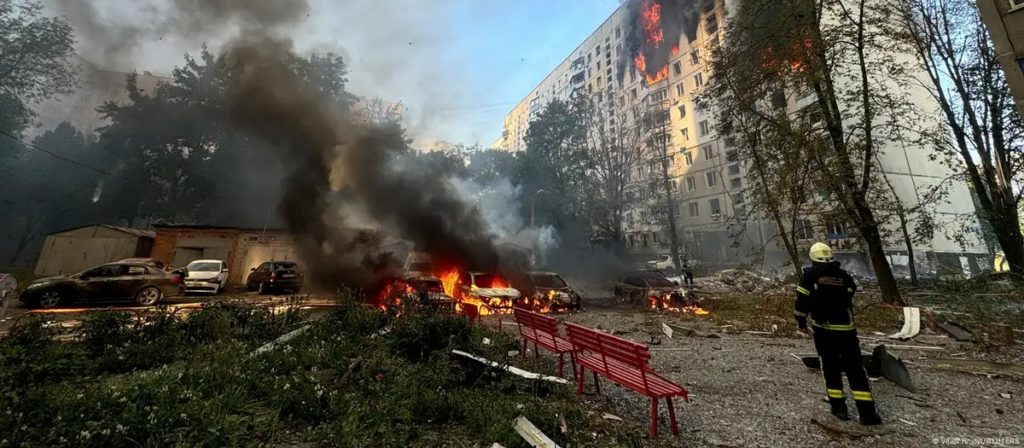On August 30, 2024, Russian forces again heavily shelled Kharkiv, which caused significant destruction and numerous civilian casualties. These strikes were made on civilian quarters of the city. At least six people, including a 14-year-old girl, were killed and more than 50 people were injured. Russian forces targeted five different locations, including residential buildings, using a terror tactic against the civilian population.
On the same day, Russian forces attacked a school in Hlukhiv, Sumy Region, resulting in the destruction of educational institutions, residential buildings, and a local business. These attacks confirm Russia’s deliberate aggressive actions against civilian infrastructure and civilians in Ukraine, especially children. Russia’s terror does not stop: attacks on civilians are just links in the same chain. First there was Bucha, then the Okhmatdyt Children’s Hospital, now schools, playgrounds, and civilian homes. This is not just a military action, but a strategy to undermine morale of the Ukrainian people and put pressure on the international community.
In response to these events, Ukraine calls on the international community for stronger support. In particular, the country needs additional air defense systems and permission to use long-range weapons against legitimate military targets in Russia, which allows deterring aggression more effectively.
At the moment, countries such as the Netherlands, the Czech Republic, the United Kingdom, France, Sweden, Poland and Canada have already allowed Ukraine to use the provided long-range weapons against Russian military targets. However, the United States has not yet given its definite consent, fearing escalation of the conflict.
At an informal meeting of EU Foreign Ministers in Brussels on 29 August 2024, EU High Representative for Foreign Affairs Josep Borrell stressed that each EU member state should decide individually whether to allow Ukraine to use long-range weapons against Russian military targets. He noted that such decisions would be made on their national interests and sovereign rights. Despite the lack of a common approach to this issue among EU members, discussions continue on the best ways to support Ukraine in its fight against Russian aggression.
Each delayed day costs the lives of civilians, including children. Western allies need to unite and provide Ukraine with the necessary assistance to protect its citizens and ensure security in the region. This is critical to prevent further destruction and casualties. Ukraine is defending not only its territory, but also the common values of the democratic world. The time has come for decisive action to stop aggression and restore a just peace and stability in Europe and on the planet.
The world cannot remain indifferent when innocent children die on playgrounds and civilians suffer in their homes. Ukraine, defending its independence and democratic values, is also fighting for the security and future of Europe. The international community must not only express support, but also take concrete action.
To protect peace and stability in Europe, there is an urgent need to strengthen support for Ukraine, including by granting full membership in the EU and NATO, as well as strengthening defense strategies and joint efforts to counter aggression. It is extremely important to allow the use of long-range weapons against military targets on Russian territory. This is the only way to effectively stop aggression and prevent further attacks that threaten the lives of civilians and children. Europe must be prepared for new challenges. If efforts to support Ukraine fail, the next in line will be European countries and its security.

